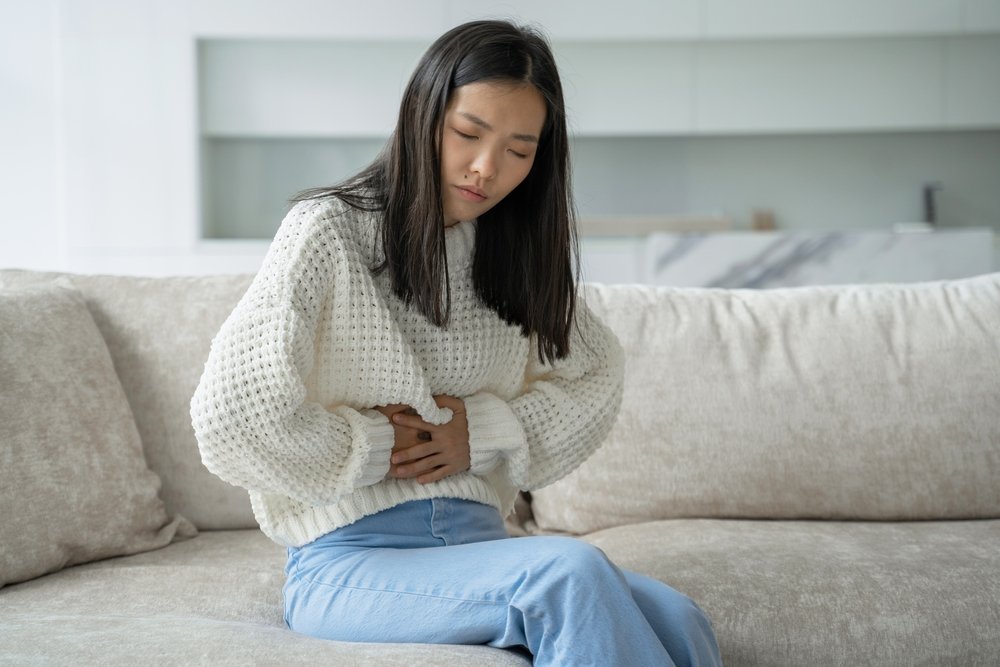Whether you are having your first period or you are already in your second, there are a few tips to reduce period bloating…
Exercise
Exercise has many benefits for period bloating, including relieving the discomfort of menstrual cramping. Exercise also regulates your menstrual cycle, which can result in lighter and less painful periods. It also releases endorphins, which can distract you from the discomfort of your period, as well as combat fatigue and moodiness.
There are no strict rules regarding exercise during your period, but regular physical activity can help relieve symptoms. Just make sure you do not overdo it. The only time that you should avoid exercising during your period is if you are experiencing pain or discomfort. In general, though, moderate exercise is safe for women during their period.
Exercise is a great way to reduce bloating and cramps, and it is a natural way to stay in shape. Even if your schedule is more hectic during your period, physical activity can help ease discomfort and help you maintain a healthier weight. Stretching exercises can also help reduce tension and improve blood flow.
Avoiding foods that cause bloating
Period bloating is a common problem that can be resolved by avoiding certain foods. Most often, the cause is gas in the stomach. You can avoid this by eating slowly and avoiding the foods that cause bloating. Bloating can also be caused by certain medical conditions, such as IBS, acid reflux, or constipation. It can also be caused by eating disorders.
It is best to eat foods that help you maintain a healthy gut microbiome. Gut bacteria play an important role in digestion and metabolism of estrogen. An out-of-balance gut bacteria may lead to an over-production of estrogen, which will result in bloating. A healthy gut microbiome helps regulate hormone levels and is the first step in treating period bloating.
Avoiding salty foods
Avoiding salty foods is one way to reduce period bloating. The main reason for this is that sodium binds with water, which causes water retention and puffiness in the body. Instead, drink more water to flush out excess salt. It is also a good idea to cut back on processed foods.
Water retention is one of the primary causes of period bloating, and eating salty foods only makes the situation worse. To combat this problem, drink extra water and eat more natural diuretics, such as asparagus, lettuce, ginger, beetroot, and parsley. If you must eat salty foods, opt for low-sodium substitutes.
Another method of reducing period bloating is to consume more fruits and vegetables. Eating fruits and nuts is an excellent way to reduce the amount of water your body retains during your period. You should also limit the amount of salt in your diet. The American Heart Association recommends that you eat no more than 1500 milligrams of salt a day. To help limit your intake of salt, try cooking your meals at home instead of eating prepared foods.
Avoiding caffeine
Caffeine and alcohol can increase the bloating associated with your period. Both substances can slow down digestion and increase fluid retention, both of which can lead to bloating. Instead, try to drink plenty of water, which is a natural diuretic that relaxes your muscles and prevents bloating. You can also try to avoid animal fats, which tend to trigger inflammation. Instead, focus on Omega-3 fatty acids, which have been shown to decrease the production of prostaglandins, the chemicals responsible for bloating.
Drinking water during your period is another great way to reduce bloating. A good rule of thumb is to drink at least two or three bottles of water throughout the day. It’s not only good for your body, but also helps reduce cramping and other symptoms associated with your period. It’s also a good idea to cut out sugary foods and fizzy drinks.
Avoiding anti-inflammatory foods
According to researchers, eating foods high in inflammatory compounds can increase the risk of painful periods. Those who are sensitive to certain foods should try to limit their intake of these foods. Eating spicy and fatty foods during your period may aggravate your discomfort. Spices are also known to cause digestive problems, including nausea, diarrhea, and bloating. Avoiding these foods during your period is especially important for those with sensitive stomachs.
Anti-inflammatory foods are those that promote blood flow and relaxation of the uterus. Some of these foods include berries, tomatoes, pineapple, garlic, ginger, and turmeric. They can also be found in nuts and fatty fish. Avoiding these foods will result in less pain and bloating during your next period.

